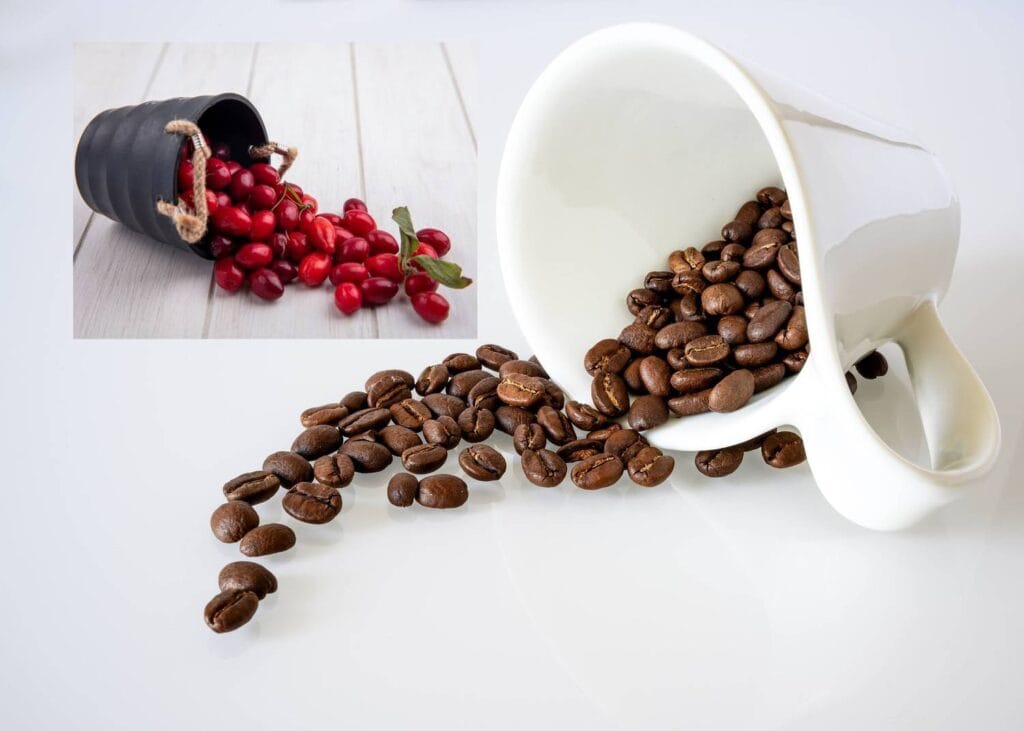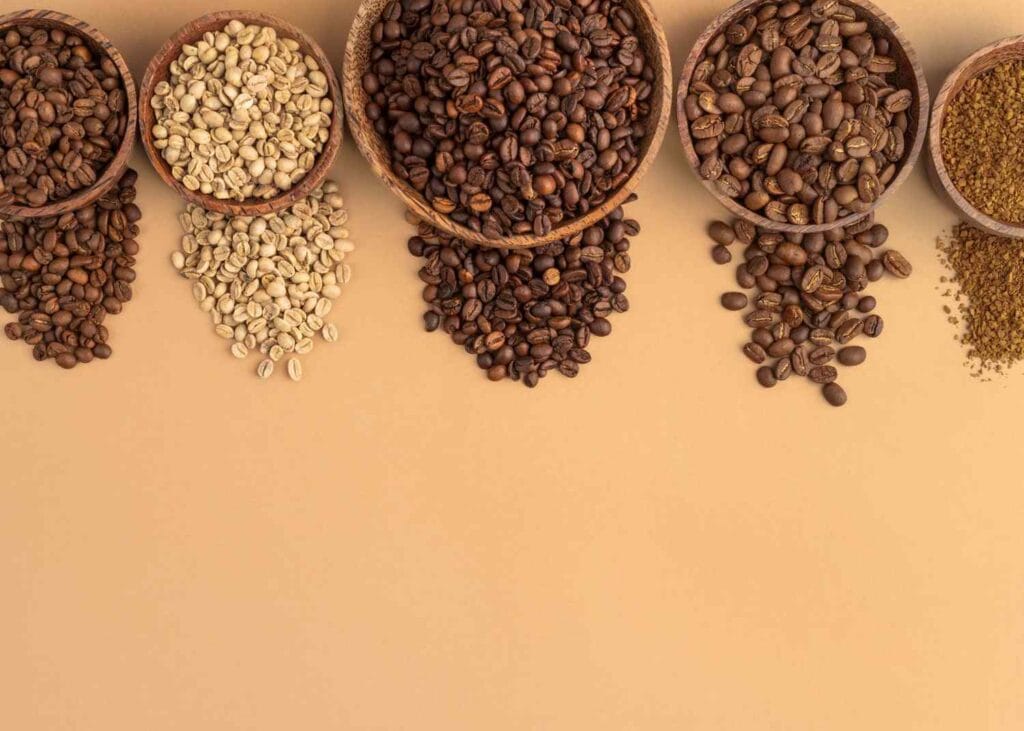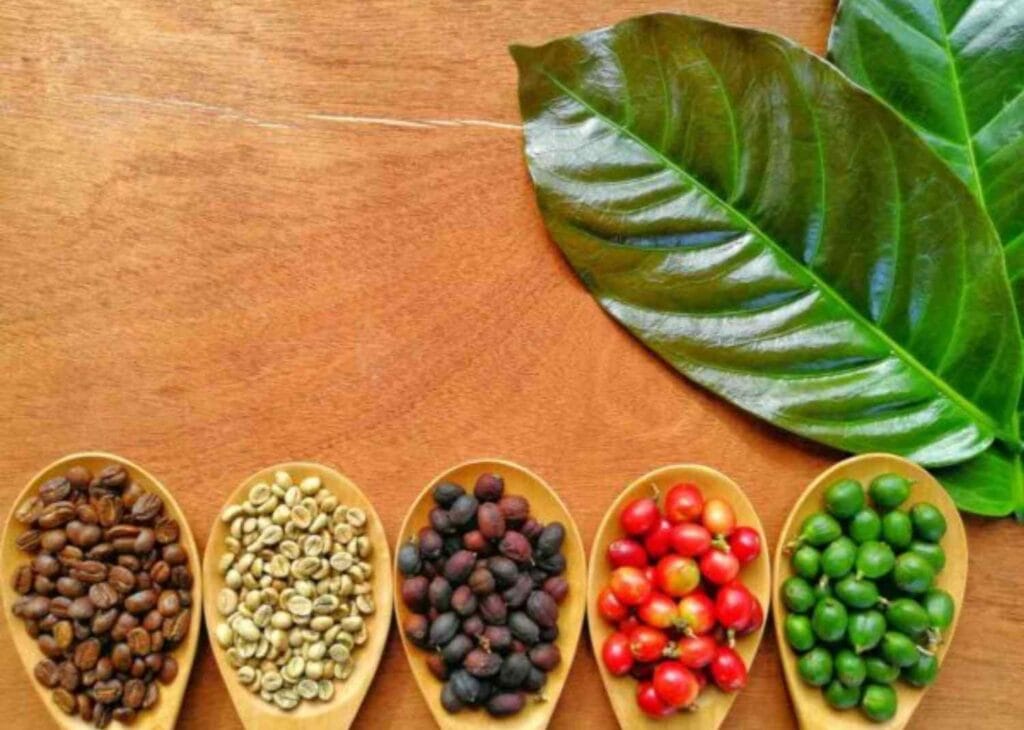Can You Eat Coffee Beans? Benefits, Risks, & Safe Eating Tips
Calling all adventurous coffee lovers! Ever wondered, “Can you eat coffee beans?” Trust me, I get it. That irresistible aroma of roasted beans and the crunch of dark chocolate-covered ones can be so tempting. But let’s pause for a moment—are they actually healthy to munch on? Let’s find out!
In this article, I’ll explore whether munching coffee is safe for health. And how is it compared to brewed coffee? Let’s explore the potential health benefits and risks of eating coffee beans!
What are Coffee Beans?
Coffee beans are the seeds of a coffee plant, found inside its fruit known as coffee cherry. These beans or seeds are usually dried, processed, roasted, and then ground to brewed into coffee.
Is it Safe to Eat Raw Coffee Beans?
Let’s tackle the question: “Are coffee beans edible?”
Yes, coffee beans are edible!
Eating green coffee beans that are raw is generally considered safe to eat in small amounts, but you’d find that they are incredibly hard to chew and have a bitter, woody flavor. While roasted coffee beans are slightly softer.
Raw coffee beans have more caffeine and are more acidic than roasted ones. So moderation is key!
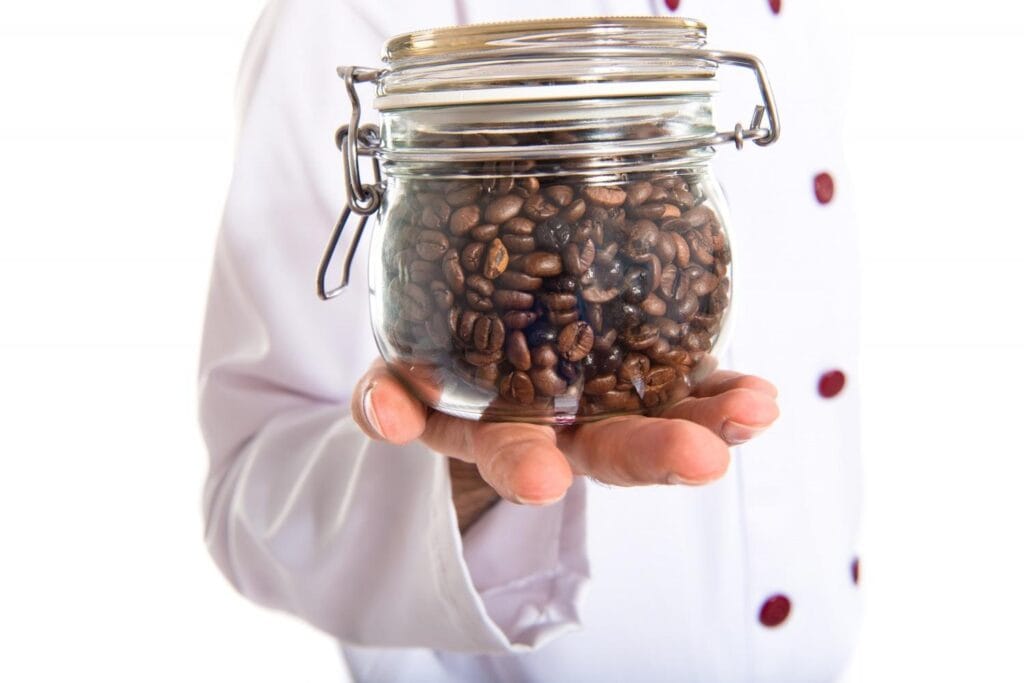
Coffee beans provide the same nutrients as a cup of coffee but in a more concentrated form. Regular coffee is filtered and mixed with water; it has less caffeine and other substances present in coffee beans. Similarly, both the benefits and side effects get more pronounced when beans are eaten whole.
| Did You Know? |
|---|
| Studies found that people drinking 4+ cups of caffeinated coffee per day had a 49% lower risk of oral and pharyngeal cancer death compared to those who drank no or occasional coffee. |
Which Coffee Beans Are Good to Eat?
Roasted coffee beans are better to eat compared to green beans. I mean if you are concerned about flavour. Roasted ones have better flavor notes. Let me make it more simple.
If you love a mild, sweet flavor with hints of fruit or chocolate, Arabica beans are your go-to choice. Prefer a bold, bitter taste? Robusta beans are perfect for you!
Among the types of coffee beans, Espresso beans stand out as a delicious option. They are especially roasted and often paired with chocolate for snacking.
Is Swallowing Coffee Beans the Same as Drinking Coffee?
No, swallowing coffee beans whole won’t give you the same caffeine kick as drinking a cup of coffee. Here’s why:
When you drink coffee, the caffeine is extracted into the liquid and is quickly absorbed by your body. Swallowing whole coffee beans, however, is a completely different story. Whole beans take much longer to break down in your digestive system, and only small amounts of caffeine are released—if any.
If you were to swallow finely ground coffee, it might work slightly better, but it could irritate your stomach. Drinking coffee remains the best and most efficient way to enjoy its energy boost. Swallowing beans might sound adventurous, but it’s not worth the effort or discomfort!
Also Read Do Coffee Beans Go Bad? 5 Signs of Expired Beans
How Many Coffee Beans Are Safe to Eat?
The number of coffee beans intake largely depends on your caffeine tolerance and overall health. Here are some key considerations:
On average, adults are generally advised to limit their caffeine intake to 400 mg per day, which is about 4 or 5 cups of coffee for a healthy adult.
An adult person can eat around 50 coffee beans to be on the safer side of caffeine intake.
The caffeine content in coffee beans varies depending on their size and how long they are roasted. Additionally, Robusta coffee beans have double the caffeine content of Arabian beans.
Typically, a single chocolate-covered coffee bean contains about 12 mg of caffeine. Adults can safely consume about 33 chocolate-covered coffee beans. Plus, if you are also getting caffeine from other sources, be mindful of your coffee bean consumption to avoid side effects.
Potential Benefits of Eating Coffee Beans
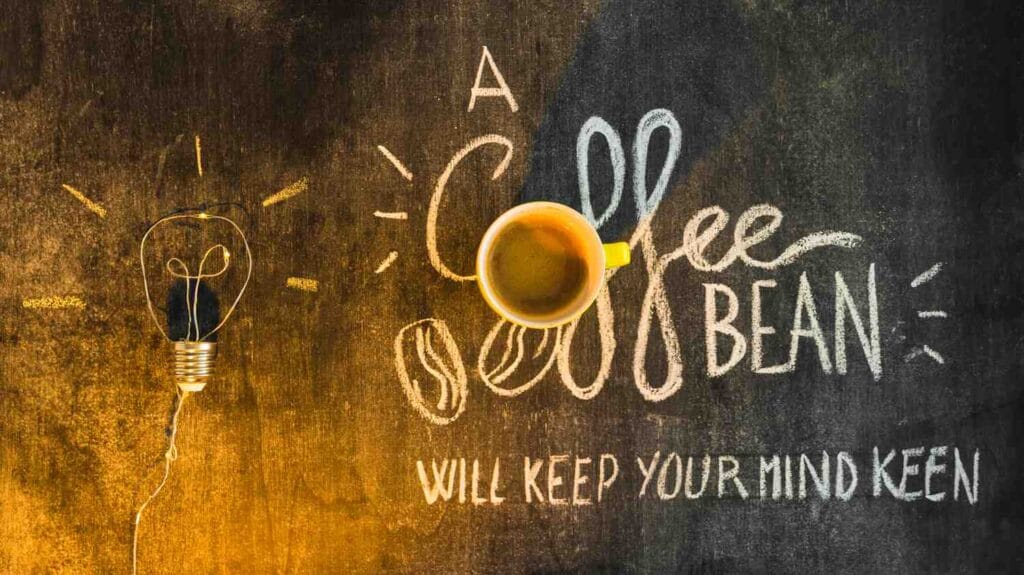
Assuming, now you are clear about can you eat coffee beans or not. Let’s get into some benefits of coffee beans.
Coffee beans are more than just the starting point of your favorite brew. They are a powerhouse of nutrients and antioxidants with some health benefits. Eating coffee beans may offer similar advantages as drinking coffee, and the only extra benefit is fiber. Here are some potential benefits of munching coffee.
Rich in Antioxidant
Coffee beans are rich in antioxidants, especially chlorogenic acid, which helps reduce inflammation and promote general health. This compound is found in higher concentrations in whole beans than in brewed coffee.
The amount of chlorogenic acid in coffee beans depends on the type of bean and how they are roasted. Even though roasting reduces chlorogenic acid, coffee beans are still one of the top sources of antioxidants.
Boost in Energy Levels
Coffee beans are packed with caffeine. Typically, eight coffee beans have the equivalent amount of caffeine as one shot of espresso. Since beans are not diluted like brewed coffee, eating a few beans can provide a boost in energy levels and alertness.
Other Health Benefits
Caffeine in coffee beans can help mildly increase metabolism and enhance exercise performance. Eating coffee beans, like drinking coffee, reduces the risk of type 2 diabetes.
Some studies have linked coffee to multiple health benefits, such as reducing the risk of heart disease and stroke, certain cancers, liver illnesses, brain disorders, depression, and many more illnesses.
Ways to Eat Coffee Beans
So, as we know coffee beans are edible, but you must be curious about the ways to eat coffee beans. There you go:
Eating Raw Coffee Beans
I know your mind is stuck in is it ok to eat raw coffee beans? Unroasted or ‘green’ coffee beans can be eaten as they are edible. These coffee beans are processed but not roasted. They are hard to chew and have a bitter woody flavor that makes them unpleasant to eat and less enjoyable as a snack.
Eating Roasted Coffee Beans
Roasted coffee beans are a much better option for eating. The light-roasted one comes with a fruity, bright taste, while the dark roast beans offer a richer, sweeter flavor with caramel notes. Both options offer softer chewing than the unroasted one without any risk to your teeth.
For the best way to enjoy, start with dark roast beans as they are sweeter, less acidic, and packed with flavors.
Chocolate-Covered Coffee Beans
A classy favorite among coffee lovers, when you coat the beans with dark or milk chocolate which balances the rich bitterness of coffee with sweet chocolate. They make a delightful snack and a quick energy boost.
Using Finely Ground Coffee Beans in Recipes
Finely ground coffee can add richness and texture to desserts like ice creams, cakes, and cookies. Their strong flavor enhances recipes making it a creative addition to many dishes such as coffee-flavoured ice cream. Adding finely ground coffee or brewed coffee to your favorite custard recipe can add depth to your homemade ice cream recipe.
These diverse options make coffee beans a testy experience in multiple forms!
Side Effects of Eating Coffee Beans
Eating coffee beans in moderate amounts has a lot of benefits, but there are potential side effects to be aware of, especially if consumed in excess.
Certain compounds in coffee can trigger stomach upset in some individuals. Caffeine and other substances found in beans may increase stomach acid production which leads to heartburn. Coffee bean intake can also cause bloating, nausea, and other types of abdominal discomfort.
Another major side effect is sleep disruption. Caffeine intake before bed can lead to sleep problems that might last up to 9.5 hours after consumption for sensitive people.
Also, the hard texture of coffee beans, especially unroasted ones, can cause teeth sensitivity in people who frequently chew them. In all cases, moderation is the Key!
Final Thoughts
That’s all about eating coffee beans! So, can you eat coffee beans? Absolutely! Among the different types of coffee beans, eating them can be a unique and energizing with some health benefits too. Don’t avoid moderation to keep things balanced.
Eating roasted coffee beans, especially chocolate-covered ones, is a treat! These are often sold as snacks and can be easily found in supermarkets. The taste varies depending on the type of roast. So, why not explore the types of coffee beans and discover your favorite way to enjoy them?
FAQs About Eating Coffee Beans
Do raw coffee beans have caffeine?
Yes, raw coffee beans contain caffeine, but they have a bitter and grassy taste compared to roasted beans.
Can you eat raw coffee powder?
It’s possible to eat raw coffee powder, but it’s very bitter and gritty. Consuming it in large amounts may cause digestive discomfort.
Can I eat coffee beans 3 times a day?
Eating coffee beans three times a day is fine in moderation. But excessive consumption can lead to caffeine-related side effects like jitteriness or insomnia.
How many coffee beans do you have to eat to equal a cup of coffee?
On average, you’d need to eat about 7-10 coffee beans to match the caffeine in one cup of brewed coffee.
How much coffee beans is safe to eat?
Eating 20-30 coffee beans per day is generally safe for most people, depending on their caffeine tolerance.
Can you eat coffee beans for weight loss?
Yes, coffee beans can support weight loss as they boost metabolism, but they should be part of a balanced diet and not relied on solely.
